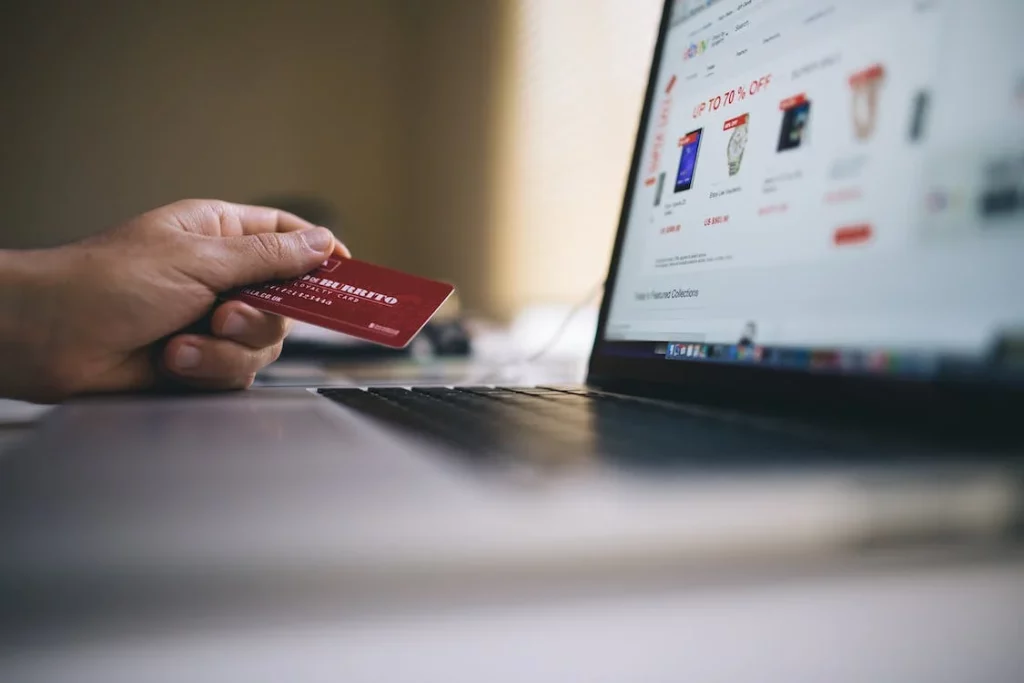How to Ensure Your Online Privacy


How to Ensure Your Online Privacy


Introduction
In today’s fast-paced digital world, safeguarding your online privacy has become a paramount concern for individuals and businesses alike. The internet offers a plethora of conveniences and opportunities, but it also poses significant risks to our personal information and data security. Cybercriminals, hackers, and data breaches can compromise sensitive information, leading to identity theft, financial loss, and various forms of online exploitation. This comprehensive guide aims to equip you with the knowledge and practical tips to ensure your online privacy and protect your digital identity from potential threats.
The Significance of Online Privacy
Online privacy refers to individuals’ ability to control the information they share and the data collected about them while using online services and platforms. It is of utmost importance for several reasons:
Protecting Personal Information
Preserving online privacy safeguards our personal information, such as names, addresses, contact details, and financial data, from falling into the wrong hands. Preventing unauthorized access to this information is essential to maintain our digital identity.
Safeguarding Financial Security
Online privacy is crucial for protecting our financial security. With the increasing use of online banking, e-commerce, and digital payment methods, keeping financial data secure is vital to prevent fraud and financial loss.
Maintaining Confidentiality
Privacy is essential for ensuring the confidentiality of sensitive communications, personal conversations, and private data. Unauthorized access to personal messages and information can lead to severe consequences, including blackmail and reputation damage.
Avoiding Identity Theft
Identity theft is a significant concern in the digital age. Cybercriminals can use stolen personal information to commit fraudulent activities and even impersonate victims for illegal purposes.
Protecting from Cyberstalking and Harassment
Online privacy measures can help prevent cyberstalking, cyberbullying, and online harassment. Preserving anonymity and limiting personal information disclosure can reduce the risk of becoming a target of such malicious activities.
Threats to Online Privacy
Data Breaches
Data breaches occur when cybercriminals infiltrate and access databases containing sensitive user information. These breaches can expose vast amounts of personal data, leading to potential identity theft and financial fraud.
Phishing Attacks
Phishing attacks involve deceptive techniques, such as fraudulent emails and websites, to trick users into revealing their login credentials and other sensitive information.
Social Engineering
Social engineering techniques manipulate individuals into revealing confidential information, often through psychological manipulation or impersonation.
Malware and Spyware
Malware and spyware are malicious software designed to infiltrate devices, monitor online activities, and steal sensitive information without the user’s knowledge.
Weak Passwords and Security Practices
Using weak passwords, reusing passwords across multiple platforms, and neglecting security updates can leave users vulnerable to unauthorized access.
Top Tips to Ensure Your Online Privacy
Use Strong and Unique Passwords
Creating strong and unique passwords for each online account is the first line of defense against unauthorized access. Avoid using easily guessable passwords and consider using password managers to securely store and manage passwords.
Enable Two-Factor Authentication (2FA)
Implementing two-factor authentication adds an extra layer of security by requiring a second form of verification, such as a one-time code sent to your mobile device, in addition to your password.
Keep Software and Apps Updated
Regularly update your operating system, applications, and security software to protect against known vulnerabilities and exploits.
Be Cautious with Personal Information
Exercise caution when sharing personal information online, especially on social media platforms. Avoid oversharing and limit the amount of personal data publicly available.
Encrypt Your Data
Use encryption tools to protect sensitive data, such as emails, files, and messages, from interception and unauthorized access.
Utilize Virtual Private Networks (VPNs)
A VPN encrypts your internet connection and routes it through secure servers, masking your IP address and enhancing your online privacy and anonymity.
Be Wary of Phishing Attempts
Remain vigilant when clicking on links or providing personal information in unsolicited emails or messages. Verify the authenticity of requests before sharing sensitive data.
Review App Permissions
Regularly review the permissions granted to mobile apps and limit access to data that is not essential for the app’s functionality.
Clear Browser Cookies and History
Regularly clear your browser’s cookies and history to minimize tracking by websites and third-party advertisers.
Avoid Using Public Wi-Fi for Sensitive Transactions
Public Wi-Fi networks may lack proper security measures, making them vulnerable to data interception. Avoid using them for sensitive transactions or use a VPN for added protection.
Use Private Browsing Mode
Activate private browsing mode in your web browser to prevent the storage of browsing history, cookies, and temporary files on your device.
Read Privacy Policies
Familiarize yourself with the privacy policies of websites and services you use to understand how they collect, use, and share your data.
Regularly Monitor Your Online Presence
Check your social media settings and privacy options to control what information is visible to others and periodically search for your name to monitor your digital footprint.
Secure Your Smart Devices
Ensure that smart devices, such as cameras and home assistants, are secured with strong passwords and updated firmware to prevent unauthorized access.
Be Mindful of Location Sharing
Limit location sharing on apps and devices to protect your privacy and security, especially when posting on social media.
Additional Tips to Ensure Online Privacy:
Regularly Review Account Activity: Keep an eye on your online accounts for any suspicious activities or unauthorized logins. If you notice anything unusual, take immediate action to secure your account.
Use Biometric Authentication: Whenever possible, opt for biometric authentication methods like fingerprint or facial recognition, which can provide an extra layer of security.
Limit Third-Party App Access: Be cautious when granting access to your personal information to third-party apps and services. Review app permissions and revoke access to any apps you no longer use or trust.
Disable Autofill and Saved Passwords: While autofill features may be convenient, they can pose a security risk if your device falls into the wrong hands. Disable autofill and avoid saving passwords in your browser.
Be Careful with Public Sharing: Think twice before sharing personal details, such as your address, phone number, or vacation plans, on social media or public forums.
Educate Yourself and Your Family: Educate yourself and your family members, especially children, about the importance of online privacy and the potential risks they may encounter.
Use Encrypted Messaging Apps: Opt for encrypted messaging apps for sensitive communications, ensuring that your messages remain private and secure.
Regularly Backup Your Data: Regularly backup your data to a secure external drive or cloud storage. In case of any data breaches or device failures, you won’t lose important information.
Secure Your Wi-Fi Network: Use strong passwords and encryption protocols (WPA2 or WPA3) to secure your home Wi-Fi network and prevent unauthorized access.
Avoid Clicking Suspicious Links: Be cautious when clicking on links in emails or messages from unknown sources, as they might lead to phishing websites or malware downloads.
Keep Personal Information Updated: Review and update your personal information on online accounts, ensuring that outdated details don’t fall into the wrong hands.
Use Privacy-Focused Search Engines: Consider using privacy-focused search engines that don’t track your search history or collect personal information.
Be Mindful of IoT Devices: Internet of Things (IoT) devices, such as smart home devices, may collect and transmit data. Secure them with strong passwords and regularly update their firmware.
Opt-Out of Data Collection: Check privacy settings on websites and services to opt-out of data collection and personalized advertisements.
Stay Informed about Privacy Laws: Familiarize yourself with privacy laws and regulations in your country, which can empower you to exercise your rights and seek recourse if your privacy is violated.
Opt for Private Email Services: Consider using email services that prioritize user privacy and security. Look for providers that offer end-to-end encryption and don’t scan your emails for advertising purposes.
Utilize Secure Cloud Storage: When storing sensitive documents or files in the cloud, opt for reputable and secure cloud storage providers that offer encryption and strong security measures.
Enable Find My Device Feature: Enable the “Find My Device” or “Find My Phone” feature on your mobile devices. This can help you locate and remotely wipe your device in case it gets lost or stolen.
Limit Social Media Sharing: Review your social media privacy settings and limit the audience for your posts. Be cautious about accepting friend requests from unknown individuals.
Regularly Check App Permissions: Periodically review app permissions on your smartphone or other devices. Some apps may request access to unnecessary data, compromising your privacy.
Avoid Using Personal Information in Passwords: Refrain from using easily accessible personal information, such as your name, birthdate, or family members’ names, in your passwords.
Stay Informed about Privacy Policies: Be aware of the privacy policies of websites and services you use. Regularly review any changes to their policies and how they handle your data.
Avoid Public Computers and Devices: Avoid logging into sensitive accounts or entering personal information on public computers or shared devices.
Use Private DNS Services: Private Domain Name System (DNS) services can enhance your privacy and security by encrypting your DNS requests.
Secure Your Social Media Accounts: Enable security features like login alerts and two-factor authentication on your social media accounts to prevent unauthorized access.
Avoid Oversharing on Social Media: Be cautious about sharing excessive personal information, such as your vacation plans or daily routines, as it can make you more vulnerable to targeted attacks.
Regularly Review App Permissions: Periodically check the permissions granted to mobile apps and revoke access to data that is not necessary for their functionality.
Disable Device Geolocation: Consider turning off geolocation services on your devices when not needed to prevent tracking of your physical whereabouts.
Use a Firewall: Install and enable a firewall on your computer or mobile devices to add an extra layer of protection against unauthorized network access.
Regularly Update Privacy Settings: Regularly review and update the privacy settings on your online accounts to ensure they align with your desired level of privacy.
By incorporating these additional tips into your online privacy practices, you can further fortify your digital defenses and protect your personal information from potential threats. Online privacy is an ongoing responsibility, and staying proactive is key to maintaining a safer and more secure online presence.
Conclusion
Ensuring your online privacy is essential for safeguarding your personal information, financial security, and digital identity in the modern digital landscape. By understanding the potential threats and following these practical tips, you can take proactive measures to protect your online privacy and enjoy a safer and more secure online experience.








